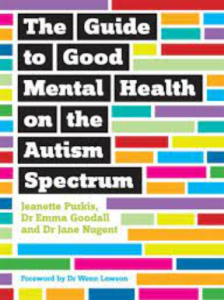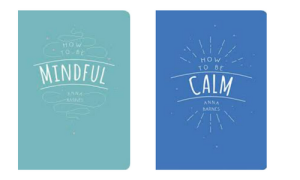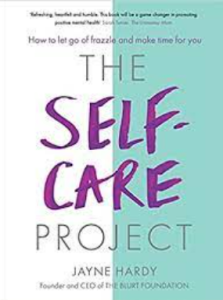For many reasons, autistic people are more prone to anxiety and depression than most other people, with parents, carers or partners sometimes finding it stressful supporting their autistic loved ones.
Sometimes a person can’t stop feelings of anxiety or low mood. They may not know what to do, feel desperate or be concerned things are getting worse. This situation can be called a ‘crisis point’ – and the person may need to get some help.
Please check the links below for advice on what to do in the following situations:
- If you or someone you care for is having a mental health emergency or crisis
- If you or someone you care for is at immediate risk of harm because of their mental health
- If you are not sure if you or someone you care for might need urgent help to keep safe because of their mental health
Click here for information on what to do in a mental health emergency or crisis.
Click here for information and advice if you need help now.
Feeling a mental health crisis coming?
If you are not at crisis point but are worried this may happen, or feel you have been struggling for too long and things are not getting better, you can ask for help.
You may have a family member or good friend who can give you the help you need, or you may wish to ask for help from a professional.
Please note, the services available are not autism specific. You may find it helpful to tell the person you speak to that you are autistic. Explain what they can do to help you, e.g. use clear language, speak slowly and give you time to process the information, give opportunities for you to ask questions to clarify your understanding.
See below for some services you can contact for help:
Talk to your GP
You can make an appointment to talk about any mental health concerns with your GP. They can give you professional advice. In some cases, they might prescribe medication to help or refer you to a specialist mental health service.
Contacting a phone or text support service
If you or someone you care for is really struggling with anxiety or low mood, you can contact one of the support services listed below.
If this is difficult for you to do by yourself, ask a parent/carer, teacher or a good friend to support you to do this.
 Samaritans: Mental health support service available 24 hours a day, every day of the year
Samaritans: Mental health support service available 24 hours a day, every day of the year
Telephone: 116 123
Email: jo@samaritans.org
 SHOUT: Mental health text support service available 24 hours a day, every day of the year
SHOUT: Mental health text support service available 24 hours a day, every day of the year
Text SHOUT to 85258
Click here to visit their website
 SANE: Offers support to anyone with a mental health problem or who is supporting someone else.
SANE: Offers support to anyone with a mental health problem or who is supporting someone else.
They are available from 4:30pm – 10:30pm every day
Telephone: 0300 304 7000
 MIND: Offers information about mental health. They can also signpost you to other services so that you receive the most appropriate support.
MIND: Offers information about mental health. They can also signpost you to other services so that you receive the most appropriate support.
They are available 9am – 6pm Monday to Friday
Telephone: 0300 123 393
Click here to visit their website
 ChatAutism
ChatAutism
If issues directly related to autism are causing mental health problems like anxiety or low mood, you can ask advice from ChatAutism, a text messaging support service for autistic people and their families, carers and loved ones in Leicester, Leicestershire and Rutland.
Available 9am-5pm every weekday, including school holidays – but not during bank holidays.
You will receive a response within 24 hours, Monday-Friday.
Please note – Chat Autism is not an emergency or crisis service
Send a text to: 07312 277097
or click here to start a chat.
Click here for a printable PDF listing clear advice and a range of support services.
Talking therapy with Vita Health Group
If you are over 16 you can self-refer to Vita Health Group. This is a free service that offers talking therapy to help with range of mental health issues such as anxiety, depression, panic attacks, sleep difficulties, OCD and trauma.
They have interventions in various formats such as 1:1, group, video call and telephone call.
You need to live in Leicester, Leicestershire or Rutland to access this service.
Click here to find out more about this service or give them a call on 0330 094 5595.
Everyday self care
Taking good care of your mental health and wellbeing can help you avoid reaching crisis point.
Practicing self-care regularly can also help moments of low mood or anxiety happen less often and can make it quicker and easier to shake off negative feelings.
See below for some ideas and resources for taking good care of your mental health:
Online tips and tools for mental health self-care
For autistic adults
- Autism Space- Looking after your mental health
- Autism Space- Resources to support with anxiety
- The National Autistic Society- Mental health
For autistic young people
- Health for Teens- Autism and anxiety
- Health for Teens- Autism and looking after your mental health
- Health for Teens- Autism and mindfulness
For anyone living in Leicester, Leicestershire or Rutland
- Leicestershire Partnership NHS Trust- Mental health
For anyone
- Blurt Foundation- Resources to understand more about depression and ideas for lifestyle changes that may help you.
- Dr Pooky Knightsmith- She is an autistic mum of autistic kids and her website contains a wealth of really well-presented resources with lots of practical tips and eye-catching visuals. There are also videos ranging from short and simple to more detailed, and audio recordings too. There is autism specific content plus information to help anyone keep their mental health in the best shape.
For young people
- YoungMinds- Supporting you and your mental health
Books
For autistic adults
 The Guide to Good Mental Health on the Autism Spectrum by Jeanette Purkis, Dr Emma Goodall and Dr Jane Nugent.
The Guide to Good Mental Health on the Autism Spectrum by Jeanette Purkis, Dr Emma Goodall and Dr Jane Nugent.
This book contains practical advice and strategies to help autistic people improve their mental wellbeing.
For anyone
 How to be Mindful and How to Be Calm – two books by Anna Barnes to help improve your mental health.
How to be Mindful and How to Be Calm – two books by Anna Barnes to help improve your mental health.
They are full of practical, clear, simple tips and tools – with stylish, impactful graphics and illustrations throughout.
 The Self Care Project by Jayne Hardy from the Blurt Foundation
The Self Care Project by Jayne Hardy from the Blurt Foundation
Practical advice on how to take care of yourself and take responsibility for your own mental and physical wellbeing – without feeling guilty about it.




